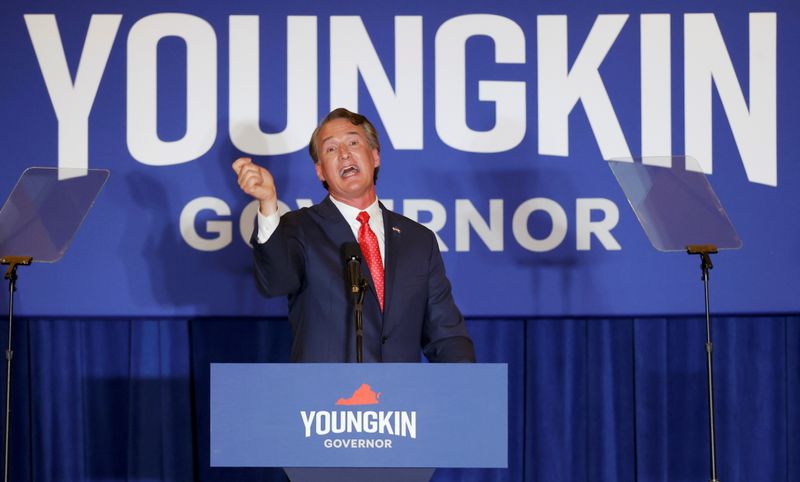(Reuters) - The underage son of Virginia Governor-elect Glenn Youngkin tried to vote in Tuesday's election and then tried a second time to cast a ballot even after being told he was ineligible, the Washington Post reported on Friday, citing county officials.
Youngkin, a Republican former private equity executive, defeated former Governor Terry McAuliffe on Tuesday after running a campaign in which he made "election integrity" one of his issues.
While Youngkin kept former Republican President Donald Trump at a distance in an attempt to win over moderates offended by Trump's style, his promotion of "election integrity" was coded language to appeal to voters who erroneously believe the 2020 election was stolen from Trump.
Youngkin's 17-year-old son attempted to vote at a polling station inside the Great Falls Library on Tuesday afternoon and showed his driver's license as proof of identity, the Post reported, citing an interview with the precinct captain there, Jennifer Chanty.
She told the young Youngkin he was ineligible to vote until he was 18 and offered to help him register for a future election, but he declined and walked out, the Post said.
He returned 20 minutes later and tried once again, saying he had a 17-year-old friend who was allowed to vote, but he was again turned away, the Post said.
The teenager broke no laws because he represented himself truthfully and caused no disruption, officials told the Post.
A spokesman for Youngkin characterized reports on the matter as "opposition research on a 17-year-old kid" that was being pushed by political opponents who were "mad that they suffered historic losses this year."

Youngkin's son "honestly misunderstood Virginia election law and simply asked polling officials if he was eligible to vote; when informed he was not, he went to school," spokesman Devin O'Malley wrote in a statement, the Post reported.
Fairfax County officials reported the incident in a statement, the Post said. Fairfax County officials did not immediately respond to a Reuters request for the statement.